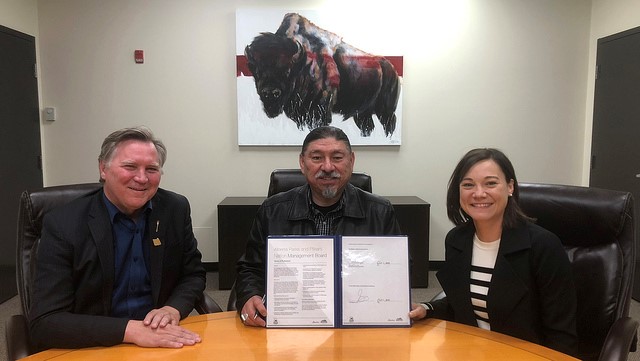The Alberta government has signed an agreement with the Piikani Nation in an effort to protect Indigenous rights in the Castle region of southwest part of the province.

On Friday, the government announced that both parties have signed “co-operative management terms of reference.” In a news release,the government said the move comes as the province places greater emphasis on traditional activities and treaty rights in parks planning.
The government also said the agreement is a historical first for Alberta.
“We heard from First Nations that they often did not feel comfortable in our parks,” said Environment Minister Shannon Phillips said in a news release on Friday.
“This is a clear message that we need to do better, and do more, to foster a new and better relationship,” she added. “This agreement marks a tremendous opportunity for government, Indigenous peoples, local communities and visitors to celebrate and appreciate First Nations’ rich culture in Alberta’s parks.”
Under the terms of reference, a management board will be created to increase cultural practices on the Castle landscape and protect access to areas of cultural significance.
The board will be tasked with providing input on things like Piikani hunting and harvesting practices, cultural practices like sweat lodges and interpretation and education of Piikani history and culture, including appropriate use of Blackfoot language in Alberta Parks signage and naming.
“This agreement allows Piikani to work collectively with the Government of Alberta in managing this area,” said Piikani Chief Stanley Grier.
“It allows our people to be more interactive and to express our history and our usage of the Castle region, while also ensuring our elders and our current generation can continue to exercise cultural practices and treaty rights important to who we are as a people.”
The board, mandated to meet four times per year, will be co-chaired by two representatives: one appointed by the province and the other by the Piikani chief and council.
Up to six other members will be named to the board, including at least one elder.
- B.C. officer alleged sexual assault, CSIS had her investigated
- Alberta to overhaul municipal rules to include sweeping new powers, municipal political parties
- Military judges don’t have divided loyalties, Canada’s top court rules
- Norad looking to NATO to help detect threats over the Arctic, chief says




Comments